Listen to this article
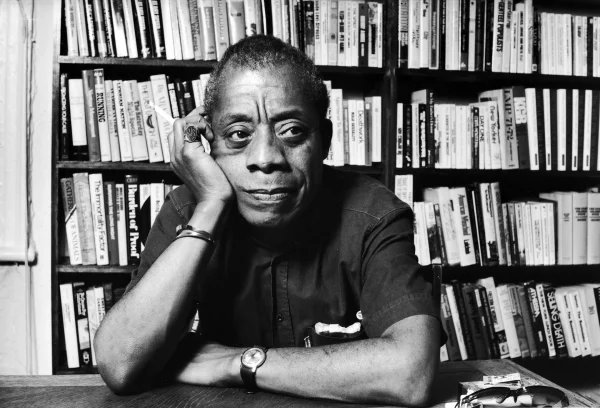
Brief Bio:
James Baldwin (1924-1987) was an American novelist, playwright, poet, essayist, and social activist. Regarded as one of the most influential American authors of the 20th century, his writings captured the zeitgeist of the 1950s onwards, focusing on the inequality between different groups of people in the United States. Being born into the Harlem Renaissance of the 1920s, Baldwin explored the complexities of the Black experience in America, and the perils of racial oppression, while also highlighting LGBTQ themes ahead of the gay rights movement.
Available Works in the Colorado Book Club Resource
The Book Club Resource has 8+ copies of each title available for 8 weeks at a time to reading groups across the state. The first six descriptions below were taken from Oprah Daily, January 25, 2019.
Another Country (1962)| Discussion Questions
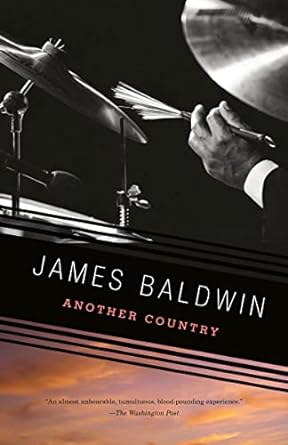
Set in New York City’s Greenwich Village in the 1950s, Another Country explores themes of mental health, interracial relationships, love, and bisexuality as the story follows the lives of a group of friends in the wake of a suicide.
After its release, many critics had mixed responses, with Paul Goodman for the New York Times writing that while the story was “personal, sinuous yet definite” it was also “strained [and] sometimes journalistic or noisy.” He did, however, acknowledge that his harsher review was a result of Baldwin’s previous work, which caused a higher standard of criticism.
Go Tell It On The Mountain (1953) | Discussion Questions
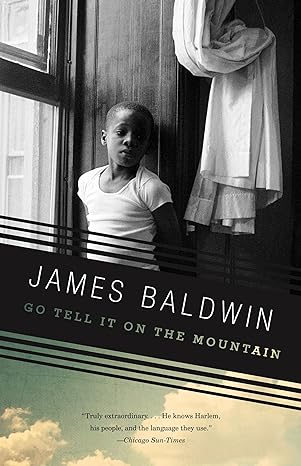 In his first novel, Baldwin penned a semi-autobiographical story about a boy named John Grimes, a teen growing up in 1930s Harlem who struggles with self-identity as the stepson of a strict Pentecostal minister. The story mirrors the author’s own life; Baldwin too was raised by a stepfather who served as a Baptist pastor. “Mountain is the book I had to write if I was ever going to write anything else,” he told The New York Times in 1985. ”I had to deal with what hurt me most. I had to deal, above all, with my father.”
In his first novel, Baldwin penned a semi-autobiographical story about a boy named John Grimes, a teen growing up in 1930s Harlem who struggles with self-identity as the stepson of a strict Pentecostal minister. The story mirrors the author’s own life; Baldwin too was raised by a stepfather who served as a Baptist pastor. “Mountain is the book I had to write if I was ever going to write anything else,” he told The New York Times in 1985. ”I had to deal with what hurt me most. I had to deal, above all, with my father.”
Going to Meet the Man (1965) | Discussion Questions
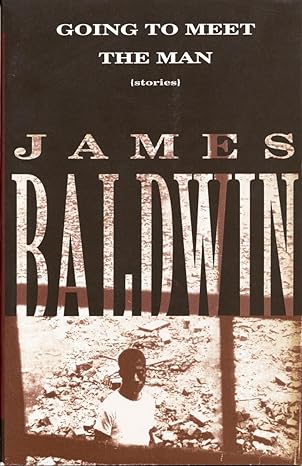 A collection of eight short stories, this book delves into yet another set of cultural themes through its varied characters: a struggling jazz musician, an angry father, and a racist cop to name a few. Popular titles included are Sonny’s Blues; This Morning, This Evening, So Soon; and The Man Child.
A collection of eight short stories, this book delves into yet another set of cultural themes through its varied characters: a struggling jazz musician, an angry father, and a racist cop to name a few. Popular titles included are Sonny’s Blues; This Morning, This Evening, So Soon; and The Man Child.
The Fire Next Time (1963) | Discussion Questions
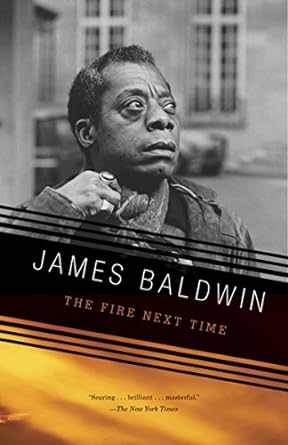 Comprised of two essays that were originally published in The New Yorker—”My Dungeon Shook: Letter to my Nephew on the One Hundredth Anniversary of Emancipation” and “Down At The Cross: Letter from a Region of My Mind”—in The Fire Next Time, Baldwin explains the place of both race and racism in society, while also examining and criticizing Christianity’s role in American beliefs. At the time, critics saw this collection as a way for white Americans to (finally) get a look inside what life was like as a Black citizen in this country.
Comprised of two essays that were originally published in The New Yorker—”My Dungeon Shook: Letter to my Nephew on the One Hundredth Anniversary of Emancipation” and “Down At The Cross: Letter from a Region of My Mind”—in The Fire Next Time, Baldwin explains the place of both race and racism in society, while also examining and criticizing Christianity’s role in American beliefs. At the time, critics saw this collection as a way for white Americans to (finally) get a look inside what life was like as a Black citizen in this country.
Notes of a Native Son (1955) | Discussion Questions
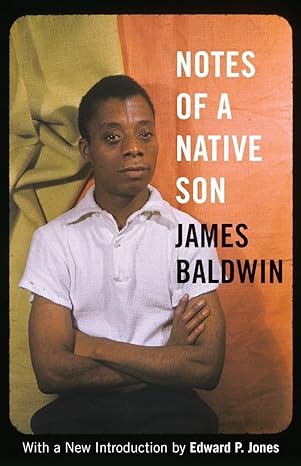 In this collection of essays, the writer captured the complexities of being Black in America during the first rumblings of the Civil Rights Movement in the 1950s. Throughout his observations, Baldwin both lamented the injustices in the African American community and showed empathy for the oppressor, establishing himself as a key voice in the movement. In a 1958 New York Times review of Notes of a Native Son, African American poet Langston Hughes said this of Baldwin’s words: “America and the world might as well have a major contemporary commentator.”
In this collection of essays, the writer captured the complexities of being Black in America during the first rumblings of the Civil Rights Movement in the 1950s. Throughout his observations, Baldwin both lamented the injustices in the African American community and showed empathy for the oppressor, establishing himself as a key voice in the movement. In a 1958 New York Times review of Notes of a Native Son, African American poet Langston Hughes said this of Baldwin’s words: “America and the world might as well have a major contemporary commentator.”
I Am Not Your Negro (2017) | Discussion Questions
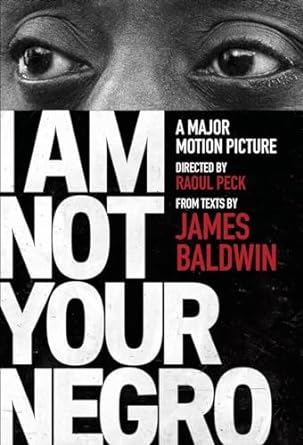 In the years before his death, Baldwin envisioned a book about his friends Martin Luther King, Malcolm X, and Medgar Evers—but never finished it. By combining an unpublished manuscript called Remember This House and varied excerpts from Baldwin’s book, notes, interviews, and letters, Raul Peck edited and published the story that the literary great never got to see come to life. Peck also directed the 2017 Oscar-nominated documentary of the same name.
In the years before his death, Baldwin envisioned a book about his friends Martin Luther King, Malcolm X, and Medgar Evers—but never finished it. By combining an unpublished manuscript called Remember This House and varied excerpts from Baldwin’s book, notes, interviews, and letters, Raul Peck edited and published the story that the literary great never got to see come to life. Peck also directed the 2017 Oscar-nominated documentary of the same name.
What Truth Sounds Like : RFK, James Baldwin, and Our Unfinished Conversation About Race In America| Discussion Questions
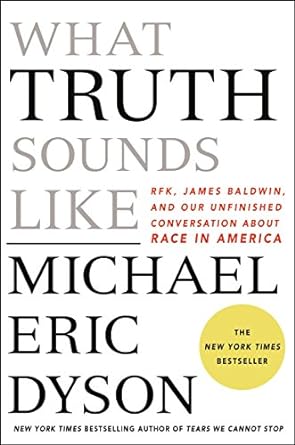 In 1963 Attorney General Robert Kennedy sought out James Baldwin to explain the rage that threatened to engulf black America. Baldwin brought along some friends, including playwright Lorraine Hansberry, psychologist Kenneth Clark, and a valiant activist, Jerome Smith. It was Smith’s relentless, unfiltered fury that set Kennedy on his heels, reducing him to sullen silence. Kennedy walked away from the nearly three-hour meeting angry – that the black folk assembled didn’t understand politics, and that they weren’t as easy to talk to as Martin Luther King. But especially that they were more interested in witness than policy. But Kennedy’s anger quickly gave way to empathy, especially for Smith. “I guess if I were in his shoes…I might feel differently about this country.” Kennedy set about changing policy – the meeting having transformed his thinking in fundamental ways.
In 1963 Attorney General Robert Kennedy sought out James Baldwin to explain the rage that threatened to engulf black America. Baldwin brought along some friends, including playwright Lorraine Hansberry, psychologist Kenneth Clark, and a valiant activist, Jerome Smith. It was Smith’s relentless, unfiltered fury that set Kennedy on his heels, reducing him to sullen silence. Kennedy walked away from the nearly three-hour meeting angry – that the black folk assembled didn’t understand politics, and that they weren’t as easy to talk to as Martin Luther King. But especially that they were more interested in witness than policy. But Kennedy’s anger quickly gave way to empathy, especially for Smith. “I guess if I were in his shoes…I might feel differently about this country.” Kennedy set about changing policy – the meeting having transformed his thinking in fundamental ways.
There was more: every big argument about race that persists to this day got a hearing in that room. Smith declaring that he’d never fight for his country given its racist tendencies, and Kennedy being appalled at such lack of patriotism, tracks the disdain for black dissent in our own time. His belief that black folk were ungrateful for the Kennedys’ efforts to make things better shows up in our day as the charge that black folk wallow in the politics of ingratitude and victimhood. The contributions of black queer folk to racial progress still cause a stir. BLM has been accused of harboring a covert queer agenda. The immigrant experience, like that of Kennedy – versus the racial experience of Baldwin – is a cudgel to excoriate black folk for lacking hustle and ingenuity. The questioning of whether folk who are interracially partnered can authentically communicate black interests persists. And we grapple still with the responsibility of black intellectuals and artists to bring about social change.
What Truth Sounds Like exists at the tense intersection of the conflict between politics and prophecy – of whether we embrace political resolution or moral redemption to fix our fractured racial landscape. The future of race and democracy hang in the balance. (Amazon – edited)
A Few Notable Facts
- James Baldwin’s birth name was James Arthur Jones, but he later adopted his step father’s surname of Baldwin.
- In 1948, at the age of 24, Baldwin moved to Paris in order to escape the bigotry and inequality he faced in the US. “If you walk out of Harlem, ride out of Harlem, downtown, the world agrees what you see is much bigger, cleaner, whiter, richer, safer than where you are.” (Statement made by Baldwin in his 1965 “Baldwin – Buckley Debate”.)
- In 1965, Baldwin debated the question “Has the American Dream been achieved at the expense of the American Negro?” with leading American Conservative, William F. Buckley Jr. at the Cambridge Union, Cambridge England.
- Baldwin admired and was influenced by Maya Angelou, Nina Simone, Dr. Martin Luther King Jr., Malcolm X, Richard Wright, and Beauford Delaney.
- Baldwin’s first published work, a review of the writer Maxim Gorky, appeared in The Nation in 1947.
- Baldwin returned to the United States in the summer of 1957 while the civil rights legislation of that year was being debated in Congress.
- Time featured Baldwin on the cover of its May 17, 1963, issue. “There is not another writer”, said Time, “who expresses with such poignancy and abrasiveness the dark realities of the racial ferment in North and South.”
- In the 1960-early 1970s, the Federal Bureau of Investigation conducted covert surveillance of American writers. Baldwin’s FBI file contains 1,884 pages of documents, collected from this time.
- Baldwin lived in France for most of his later life, settling at Saint-Paul-de-Vence in the south of France in 1970. He died there in 1987 of stomach cancer.
- Awards: Guggenheim Fellowship, 1954; Eugene F. Saxton Memorial Trust Award; Foreign Drama Critics Award; George Polk Memorial Award, 1963; MacDowell fellowships: 1954, 1958, 1960; Commandeur de la Légion d’honneur, 1986.
Selected Quotes
- “Love takes off the masks that we fear we cannot live without and know we cannot live within.” – The Fire Next Time 1963
- “Not everything that is faced can be changed; but nothing can be changed until it is faced.” – 1962 essay for The New York Times
- “To be a Negro in this country and to be relatively conscious is to be in a rage almost all the time.” – 1961 radio interview
- “The most dangerous creation of any society is the man who has nothing to lose.” – The Fire Next Time 1963
- “It is certain, in any case, that ignorance, allied with power, is the most ferocious enemy justice can have.” – No Name in the Street
- “Neither love nor terror makes one blind: indifference makes one blind,” – If Beale Street Could Talk
- “The price one pays for pursuing any profession or calling is an intimate knowledge of its ugly side.” The Price of a Ticket
- “Does the law exist for the purpose of furthering the ambitions of those who have sworn to uphold the law, or is it seriously to be considered as a moral, unifying force, the health and strength of a nation?” – No Name on the Street 1972
- “All I’ve ever wanted to do is tell that I’m not trying to solve anybody’s problems, not even my own. I’m just trying to outline what the problems are” – May 1963 profile in Life Magazine
- “And once you realize that you can do something, it would be difficult to live with yourself if you didn’t do it.” – The Paris Review
- “Everybody’s journey is individual. If you fall in love with a boy, you fall in love with a boy. The fact that many Americans consider it a disease says more about them than it does about homosexuality.” – Conversations with James Baldwin
- “I imagine one of the reasons people cling to their hates so stubbornly is because they sense, once hate is gone, they will be forced to deal with pain.” – Notes of a Native Son
- “If one really wishes to know how justice is administered in a country, one does not question the policemen, the lawyers, the judges, or the protected members of the middle class. One goes to the unprotected—those, precisely, who need the law’s protection most!—and listens to their testimony.” – No Name on the Street
For more information on James Baldwin’s life, written works, and fight for social justice, check out this Ted Ed video on YouTube: Notes of a native son: The world according to James Baldwin” by Christina Greer, and some of the resources listed below in the source material for this post.
Sources
- Wikipedia
- Oprah Daily
- Britannica Online
- National Museum of African American History & Culture
- James Baldwin Discusses Racism – The Dick Cavett Show
- James Baldwin debates Paul Weiss – Dick Cavett Show
- James Baldwin v. William F Buckley (1965) Legendary debate at Cambridge University, UK.
Book club sets are circulated to participating libraries via the CLiC courier. Read all about the program on the Book Club Resource landing page. If you are interested in receiving book club sets but are not already a member library, use the online form to get signed up.
Since the BCR has always relied on book donations, we are deeply grateful to all of the institutions and individuals that have donated sets and helped make the collection stronger. Please contact bookclub@coloradovirtuallibrary.org for questions or to discuss donations.
- Desperately Seeking High School Newspapers – for CHNC - January 21, 2025
- Book Club Author Suggestion: Ellen Hopkins - January 15, 2025
- Accessibility Quick Tip: Making Video Recordings Usable by All. - January 14, 2025